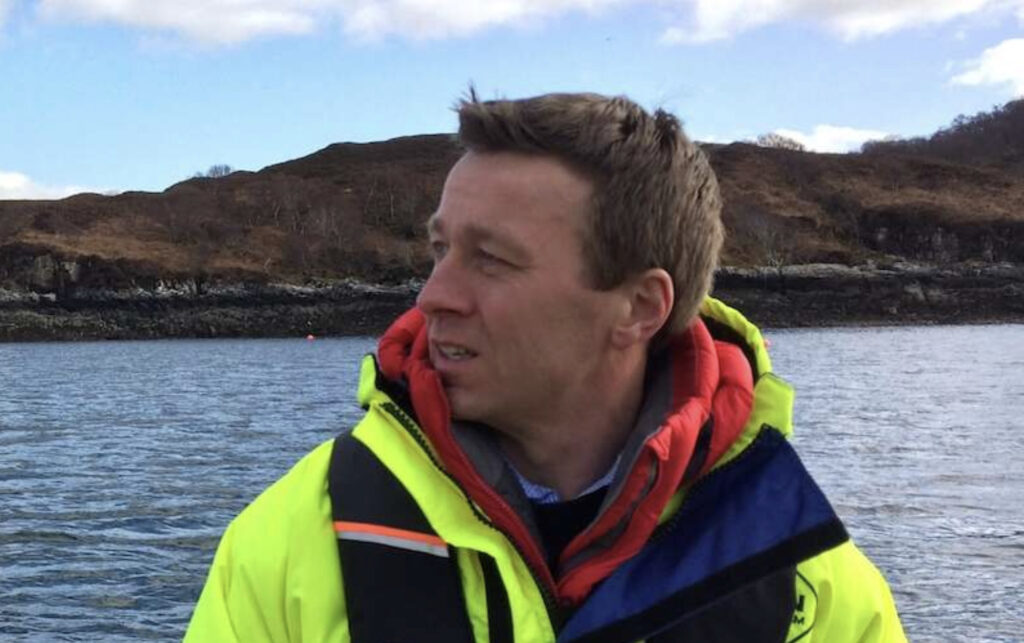Row over timing for new Slice limits

The Scottish Government has defended its decision to allow a four-year implementation period for new regulations which will reduce the permitted limits for a key sea lice treatment. Environmental campaigners have expressed concern that the new limits will not be imposed sooner.
The consultation on a new environmental quality standard (EQS) for emamectin benzoate (EmBz), marketed commercially as Slice, ran from April to July last year. The EQS will see the acceptable limit of 763 nanograms (ng)/kg of sediment wet weight reduced to 272ng/kg dry weight.
The Scottish Environment Protection Agency (SEPA) said that tighter limits were being introduced following scientific evidence that EmBz is harmful to crustaceans in the areas it is used, as well as the sea lice which it targets.
Views in the consultation ranged from resistance on the part of some producers, and scepticism over the scientific basis for the change, to calls from environmental lobby groups for a complete ban.
While the new limits for EmBz are already being applied to applications for new or increased discharges, the Scottish Government last week stated: “Taking into account sector concerns and the need to safeguard the environment, Scottish Ministers will direct SEPA to implement the EQS within a 48-month timeframe.”
The Scottish Government also stated: “Scottish Government acknowledges that the application of the new EQS is likely to reduce the number of treatments that can be made in a cycle.
“Emamectin benzoate is persistent in the environment, breaking down slowly, therefore, to avoid exceeding the environmental standard, sufficient breakdown is necessary before more can be accommodated or increased waste capture is required.”
The time allowed to implement the change acknowledges concerns that fish farmers will need to change their lice treatment plans, especially for younger, smaller fish that will less easily withstand handling in mechanical or freshwater treatments.

Mixed responses
The grace period was not universally welcomed, however. John Aitchison, Chair of the Friends of the Sound of Jura, posted on X: “By 2028, the Scottish Government will have allowed salmon farms to discharge the pesticide emamectin benzoate into the sea for 12 years, at levels that it knew were killing wild crustaceans far away from the farms. Scottish Ministers should be ashamed.”
Peter Pollard, Head of Ecology at the Scottish Environment Protection Agency, said: “As Scotland’s principal environmental regulator, we’re clear in our role around safeguarding our marine environment. The development of the new environmental standard for emamectin benzoate (EmBz) in marine sediments was led by the UK Technical Advisory Group.
“The standard was derived following internationally agreed methodology for setting environmental standards and using the best available scientific evidence on the toxicity of the medicine to aquatic life. We remain confident in the approach undertaken by UKTAG and the Scottish Government, which is led by scientific evidence and understanding in accordance with a procedure set in law and EU-wide guidance.
“SEPA have been applying the new environmental standard when determining applications for proposed new, or increased, discharges of EmBz since March 2023. This updated interim environmental safety limits that we had been applying since 2017 to regulate all proposed new, or increased, discharges of EmBz.
“Following Scottish Government’s decision on the application of the new environmental standard to all discharges, including those authorised prior to our application of interim safety limits in 2017, we have begun work to calculate updated licence conditions. These will reduce the quantities of EmBz that can be discharged and enable the progressive recovery of the environment from the effects of past discharges. We will ensure these new conditions come into force, and are complied with, in accordance with the timetable set by Scottish Government.”

Dr Iain Berrill, Head of Technical, Salmon Scotland
Dr Iain Berrill, Head of Technical at industry body Salmon Scotland, said: “Scotland’s salmon farmers take their responsibilities to the environment very seriously and provide world-leading standards of animal health and welfare that are independently verified by government and third-party certification bodies.
“We have engaged fully in the process to establish a scientifically robust standard which is based on the most up-to-date and rigorous evidence available, adheres to European guidelines, and includes a high margin of safety to protect the marine environment.”
This article was updated on 19 August.

